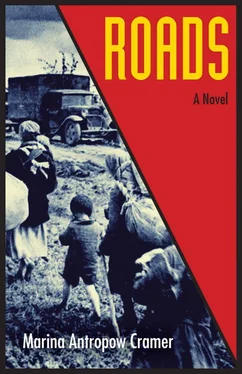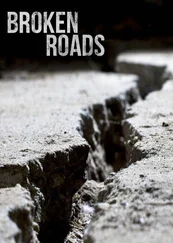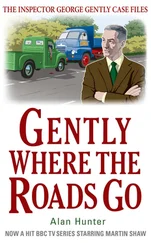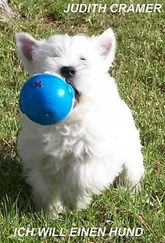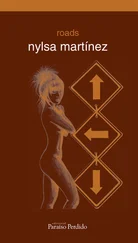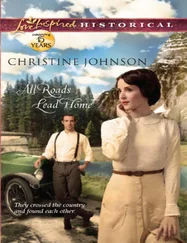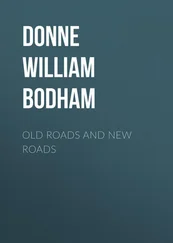Curious, she reread Chekhov, and found herself of two minds about her country’s greatest storyteller. She admired his vivid characters and the easy flow of his words across the page, capturing moments in nineteenth-century Russian life with a vibrant quality that would, she was sure, continue to delight readers for years to come. But why did he dwell so much on the sordid side of life? His stories lulled you with their eloquence while showing you the very worst in human nature: lies, deceptions, cruelties, and bitter twists of fate. Even love, so prominent a theme in almost every piece, was tainted. Those few characters who loved truly, wholeheartedly, invariably came to a bad end, never understanding how their own naive view of grand emotions led to their downfall.
___
“There is going to be a child.” She released the words into the dark above the bed, not sure whether she wanted Vadim to hear her whispered news.
He heard, and turned to her. “Is there? Are you sure?”
“Oh, yes. In mid-May, the doctor said.”
She did not know how to interpret his silence.
“I will need some knitting wool.” Are you not glad? She wanted to ask, but feared the answer and kept the thought to herself. They had talked little about starting a family; in the six years of their marriage, in contrast to the country’s turmoil, their home was a refuge, quiet and safe.
Now she could leave her teaching position with dignity. She had begun to feel out of step in the classroom, where portraits of the imperial family had been replaced with Lenin’s grave countenance. Reference to God was forbidden, and it seemed more and more of her job involved leading the children toward involvement in Young Pioneers. Now, she could walk away before her loyalty to the new order could be called into question.
When Filip came, he hollowed her out, taking with him the sheltering contents of her womb. His breech birth left her uterus so damaged that the doctor and attending midwife removed it, telling the exhausted young mother only after she regained consciousness.
The baby was surprisingly small, for all the pain and disruption of his arrival. Zoya peered at the little wizened face, marveled at the blankness of its expression, except for a hint of smugness around the tiny puckered mouth. I am your child , it seemed to say. There will be no other.
It took time for Zoya to see this child as a gift from God. The entire experience, the interminable pregnancy, punctuated with episodes of unaccountable bleeding that sent her to bed for days at a time; the hellish birth, which left her lying in her own sweat and blood, barely aware, before the blessed relief of deep sleep, that the moans still reverberating in the overheated room had been her own.
Father Yefim came, held her hand and encouraged her to pray. But her mind felt numb, her body violated; she could not force the words out of her desiccated mouth.
“God allows us to suffer so we will cherish our children. He will not send more pain than we can bear.” Eyes closed, he recited phrases meant to give her comfort, but she could not fathom their relevance and soon fell asleep, lulled by the rhythmic droning of his familiar voice.
“I have no quarrel with God,” she would reply when she awoke and he was gone. “But there was no we in this event, was there?” She covered her mouth with the edge of the sheet, even though no one but the sleeping baby was there to hear the impertinent words. This child, why did he have to announce his arrival with such wrenching ferocity, the memory of which convulsed her with fresh waves of dread? If God had done anything, it was to guarantee that she would never go through this again. She was grateful for this proof of divine mercy, but felt vaguely ill at ease, as if she had misunderstood an important lesson, failed to grasp the kernel of truth in a complicated parable. It was too much to think about. She slept.
There was no one to help her with the child. In spite of the best efforts of the sanatorium and the healing effects of the Black Sea climate, Zoya’s mother had succumbed to tuberculosis the previous year. Travel was difficult, requiring special passports even within the same district; no other female relatives from either side of the family lived close enough to make the journey, or want to. Only her father was nearby, and he knew nothing about babies.
He was a beaten man, her father. Accused of being a monarchist and White Army sympathizer, he was stripped of his upper-grade teaching position and now worked as a janitor at the elementary school. “I was lucky,” he said. “Some of the teachers were hounded to the point of madness.” He reached a tentative finger into the basket where his grandson lay, quiet and watchful, dark eyes scanning the limits of his visible world. “Is there more tea?”
Refilling his cup, Zoya did not ask about her father’s colleagues. She knew there had been hasty interrogations, People’s Court trials convened on the spot, followed by swift executions. She preferred not to hear how rough, unschooled hands reviewed the scanty evidence of treasonous leanings, based, sometimes, on a lazy student’s personal grudge against a stern teacher.
Even at home, it was best not to talk about patriotism; the word’s meaning shifted constantly from one week to the next, as nascent political parties scrabbled for power in a government as raw as it was chaotic. When the civil war ended, Lenin died, and Stalin emerged victorious, she felt, frankly, indifferent. What did it matter? They were all guilty, in her view. All of them, whatever they called themselves, were complicit in the murder of the tsar and his radiant family.
“It was unfortunate, but necessary,” Vadim said on the one occasion when the topic came up between them. “And they are still a threat, even in death. As martyrs, they will continue to attract support, particularly abroad. Comrade Stalin is right to be vigilant.”
Zoya flushed deeply, surprised by the vehemence of her feelings. “It was barbaric. Are we pagan Pechenegs, or ancient Romans, who thought nothing of removing their fathers, their own brothers, just to have a turn at sitting on the throne a few years? They are assassins. Tsar Nicholas was a gentle man. He loved peace and family life.”
“No doubt some hundred years from now he will be elevated to sainthood,” Vadim predicted. “In the meantime, please keep these views to yourself, my dear.” He filled a pipe with Turkish tobacco and lit it, leaning back in his chair, watching his wife through half-closed eyes.
“As he should be,” she muttered, returning to the mending in her lap. Even a Communist Party member, it seemed, could never have enough good shirts.
NASTYA WAS A TALL, gaunt woman who brought vegetables to Yalta’s open-air bazaar from her small tenant plot in the Ukrainian countryside.
“Not much there. Ne mnogo ,” Vadim observed, peering into her roughly woven basket, the straw dark as strong tea, stained by many years’ use.
“ Shto Bog dayot . What the Lord provides,” she answered unsmiling, squinting up at him from her mat, her bronzed face rugged as the land.
“And the kolkhoz? Doesn’t the collective distribute the goods fairly?”
She glanced up sharply, meeting and holding his gaze for an instant before shifting her eyes to one side. For a while, in the first flush of postrevolutionary euphoria, it had been possible to speak one’s mind, to criticize officials and policies openly in letters to the myriad newspapers that sprang up like mushrooms after rain. That time had passed; the dissident presses were closed down, and one wrote such letters at one’s own peril. “The kolkhoz? It’s the same barin , only this landlord wears a cap with a red star instead of a frock coat. These are my vegetables. I grew them myself.”
Читать дальше
